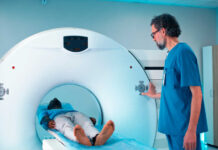
Binge drinking is a pattern of heavy alcohol consumption that elevates blood alcohol concentration (BAC) levels to 0.08 or higher. This typically amounts to about 4 or 5 standard drinks consumed on a single occasion.
It doesn’t matter if you’re drinking in celebration, at a party or special event, or simply because you’re trying to cope with stress or anxiety—binge drinking can have very serious consequences for your health.
Why Binge Drinking is Dangerous
Your liver has the job of filtering out toxins from your body, and alcohol is a toxin. When you consume large amounts of alcohol in a short period of time, your liver can’t keep up with the filtering process.
It can only typically break down about one standard alcoholic drink per hour. If you drink more than that, the alcohol will accumulate in your bloodstream. And since your blood circulates throughout your entire body, that means the alcohol toxins can negatively affect virtually every organ and tissue in your body.
Short-Term Effects of Binge Drinking
The most immediate dangers of binge drinking are the health risks associated with alcohol intoxication. These include:
● Drowsiness
● Poor coordination
● Nausea and vomiting
● Diarrhea
● Headache
● Anxiety and depression
● Slow reaction time
● Blurry vision
● Impaired judgment
● Memory problems
● Blackouts
Binge drinking also reduces your inhibition and judgment, which can lead to risky behaviors like unprotected sex, driving while intoxicated, or engaging in other dangerous activities.
Alcohol consumption can also reduce the functionality of your immune system, meaning that a night of drinking might lead you to more easily catching a bacterial or viral infection.
Even just one single night of binge drinking can potentially be life-threatening. Nearly half of all alcohol-related deaths are directly associated with binge drinking.
Long-Term Effects of Binge Drinking
If you binge drink on a regular basis, you’re also putting yourself at risk for developing some serious health problems down the road.
Not only can it raise your risk for developing chronic diseases like heart disease, diabetes, and sleep disorders, it can become very likely that you end up with life-threatening liver damage, pancreatitis, or some form of cancer.
Regular alcohol consumption can also lead to brain damage, cognitive problems, and severe memory loss.
On top of all that, you will also likely face the social and personal consequences that often come with alcohol use disorder, like job loss, relationship problems, and financial instability.
Signs That It’s Time to Stop Binge Drinking
If you’re wondering whether or not your drinking habits have crossed the line into problematic territory, here are some signs to look out for:
● You drink more than you used to.
● You drink alcohol every night or most nights.
● You often have more than 4 drinks on a single occasion.
● You struggle to control how much you drink.
● You need to drink more and more alcohol to get the same desired effects.
● You’re experiencing negative consequences because of your drinking, like job troubles or relationship problems.
● You keep drinking even though you know it’s causing problems in your life.
● You experience strong urges or cravings for alcohol.
● You have difficulty reducing or quitting your drinking despite your best efforts.
● You experience withdrawal symptoms when you try to cut back on your drinking or stop altogether.
● You have experienced blackouts or significant memory loss as a result of your drinking.
Binge drinking and alcohol use disorder are serious problems that can have a major impact on your health, relationships, and overall well-being.
If you’re concerned that your drinking habits might be putting your health (or other people) at risk, it’s important to reach out for help. There are many resources available to help you cut back on your drinking or quit altogether.


















